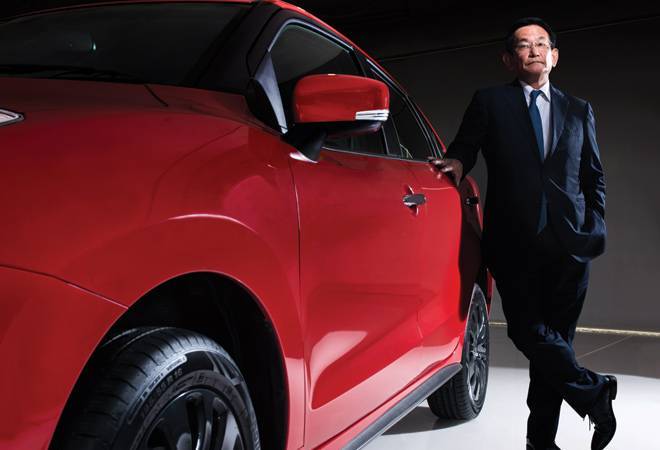India is at the crossroad of a big change in the mobility market and Maruti Suzuki is the front runner. As concerns over climate change grow, the focus has also shifted towards an environment friendly solution that’s in sync with changing trend in the auto industry.

India, one of the biggest polluters in the world, is aiming for 100 per cent electric mobility in the country by 2030. And being an industry leader, Maruti Suzuki, which revolutionised the auto industry in India in 80s, has big plans to retain its dominance over the Indian auto market. The company is gearing up to launch its first electric car in India by 2020, besides working on hybrid and premium category vehicles. Challenges are there but company CEO Kenichi Ayukawa says it’s time to bring a change, which is not possible without the support of people and government of India.
Ayukawa, during an interview with Business Today, said the company would gradually proceed towards hybrid and micro-hybrid cars in India. “Things don’t change in one day, it’s not possible. But we need to continuously keep on improving efficiency by bringing in technology that’s environment friendly. One idea we are focusing on is hybrid.”
On asking how long will it take for the company to have at least an electric variant just like petrol and diesel cars, Ayukawa says: “Though there’s no demand right now, it may take 10 or 20 years, depending on how people adopt the technology.”
Maruti Suzuki India (MSI) Chairman RC Bhargava last month had said affordability was a major challenge that EVs would face and for them to be successful, focus had to be on manufacturing of batteries and other components within the country to bring down cost. So can this disruption stunt India’s growth as a car market? “That will depend on market because the government is not forcing this on people, they have decide whether to adopt electric cars or not,” says Ayukawa, acknowledging that setting up the lithium ion battery plant in Gujarat is a step in right direction.
Will the company ever focus on premium category cars for India? Ayukawa says as the demand for higher segment cars are increasing, the company is also coming up with products like Maruti Suzuki Nexa and Arena. Interestingly, auto major Toyota and Suzuki signed a partnership in November 2017 to work in areas of new technology and component sharing. On what roles Toyota and Suzuki are going to play under this new deal, Ayukawa says the company is working on a strategy to work with Toyota on building future cars for India.
Despite being in an impregnable position, Maruti and Ayukawa are not taking things for granted. The advent of electric mobility is set to challenge industry norms. Maruti cannot remain insulated from the potential disruption. In fact, as a market leader, it may be more vulnerable than others. Ayukawa admits that Suzuki is relatively weak in this area than many other global manufacturers. But he says the company will do all it takes to find a solution.
Currently, the carmaker accounts for about half of all cars sold in India. Maruti Suzuki, with stock price of over Rs 9,300, is only behind market heavyweights like Reliance Industries, TCS, HDFC Bank and ITC when it comes to market capitalization.
Article Source: Business Today
